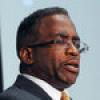Op-Ed
States Make the Right Moves
California, Washington and Indiana recently enacted legislation to help facilitate community broadband networks:
Cooperatives and Rural Broadband
Underserved communities can provide broadband for themselves through nonprofit, cooperative entities. Many co-ops that were originally set up to provide phone service and distribute electricity now deliver broadband as well. Rural electric and telephone cooperatives are fiberizing rural America. Following are a few examples of the hundreds of successful cooperative projects.
Communities Join Forces For Broadband
Regional efforts to develop broadband infrastructure are becoming more common.

Creative Orientation Means Success In Broadband and Telehealth
Two years ago I wrote that community broadband builders have two options for network deployment: they could use the problem-solving approach or the creation orientation approach. The problem-solving approach is typical when people deal with the government. The goal is often to make something go away.

A Stellar Public Servant
A legend is leaving the Federal Communications Commission as the new year begins. Her name is Karen Peltz Strauss. Some of you may not have heard of her, but to the nation’s disabilities communities, she is a hero. She achieved this status the old-fashioned way. She earned it. In over 40 years in Washington, I have been privileged to work with many brilliant public servants. Karen Peltz Strauss is in the top-most tier of these incredibly able people. Her star shines brightly in the public service firmament. She came to the agency with a goal, she never wavered from that goal, and she achie

The FCC's Restoring Internet Freedom Order is Ignorant of and Conflicts With the Internet's Architecture
The Federal Communications Commission’s 2018 Restoring Internet Freedom (RIF) Order reclassified broadband Internet access service from a telecommunications service to an information service, largely on the basis of an interpretation of broadband service that is fundamentally incorrect. This reclassification gave the FCC the license not only to repeal the 2015 net neutrality rules, but to abdicate its role overseeing the broadband market.
The case for why Big Tech is violating antitrust laws
Big Tech is violating the Sherman Act of 1890. Why, then, isn't anything being done about Big Tech violating the Sherman Act? In recent decades, corporate defendants have persuaded judges to narrow the law, by requiring, for instance, evidence of price increases to prove a case. But consumers pay for tech platforms' services with data, not dollars. The Sherman Act makes no mention of prices, and low prices should not be the only goal. Competition should be the goal.

To accommodate a 21st-century workforce, we need to make sure we have 21st-century infrastructure
To accommodate a 21st-century workforce, we need to make sure we have 21st-century infrastructure. No serious infrastructure plan is complete without addressing broadband expansion. There is strong bipartisan support for including broadband funding in any infrastructure package, and that's good news. As we expand access to broadband, we must also do more to protect people's data online.
How Much of the Internet Is Fake? Turns Out, a Lot of It, Actually.
How much of the internet is fake? Studies generally suggest that, year after year, less than 60 percent of web traffic is human; some years, according to some researchers, a healthy majority of it is bot. For a period of time in 2013, a full half of YouTube traffic was “bots masquerading as people,” a portion so high that employees feared an inflection point after which YouTube’s systems for detecting fraudulent traffic would begin to regard bot traffic as real and human traffic as fake. They called this hypothetical event “the Inversion.”

Connecting the Unconnected with Open Access Infrastructure
Most Americans do not have much of a choice in Internet service providers, even in big cities. But for a lucky few, they have not only a robust gigabit connection but also a choice of many providers. This is most common in an arrangement called “open access.” Some 30 communities spread across the United States have embraced this model — where the local government builds a fiber-optic infrastructure and acts as a wholesaler, allowing independent Internet Service Providers (ISPs) to offer the actual service to households and businesses.

